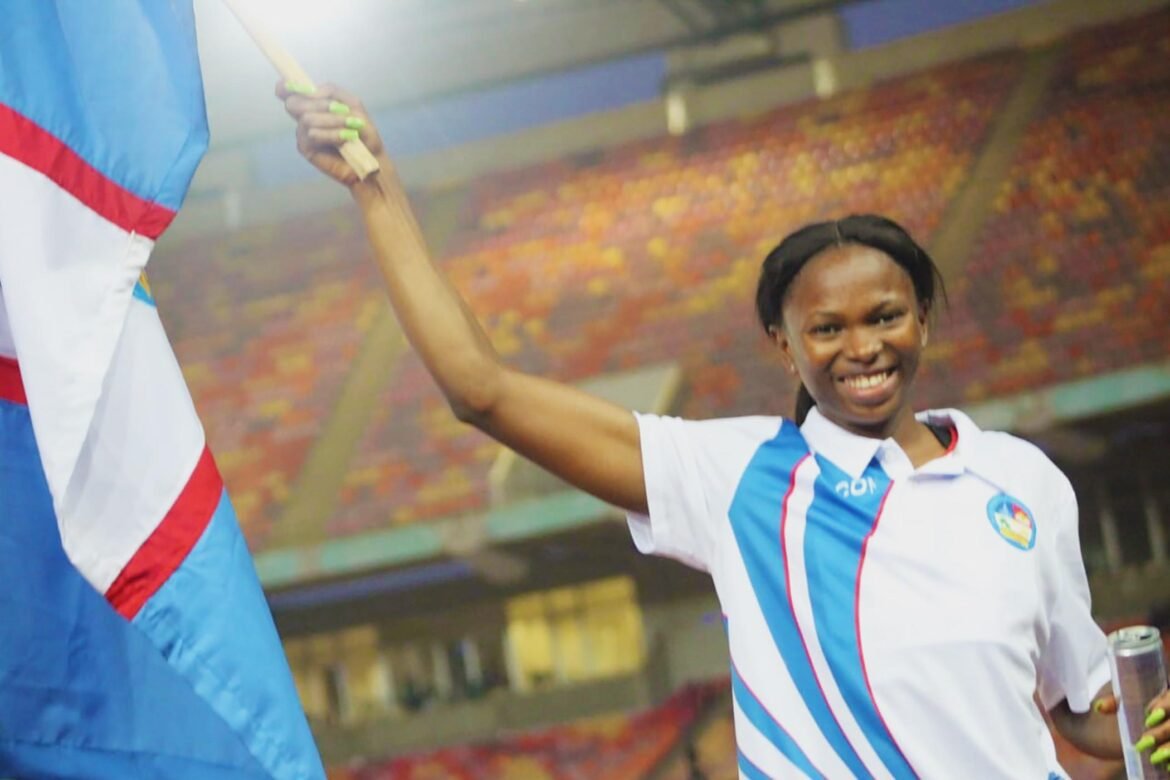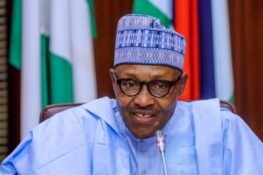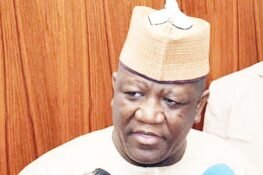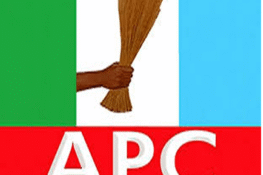Most Nigerians of my age love athletics. We grew up on it in the 1970s and 1980s.
So, as the 2019 World Athletic Championships in Doha, Qatar, ran on television, I was glued, expecting to see Nigerian athletes display some glitter and deliver medals.
But I was left to rue the fate that has befallen Nigerian sports.
The green and white colours were a scarce combination on the tracks and Nigeria did not compete in the final races, talk much pick up medals.
In the end, a sports-loving nation of 200 million people managed to pick a single bronze in the less glamorous long jump event, great thanks to Ese Brume.
The championship was a graphic illustration of the ghastly state of sports in Nigeria.
Once upon a time, its green and white was plastered on the tracks at the finals, especially in the sprints, at any international championship.
The 2019 Championships is a sharp contrast to the Nigeria that once competed well against the best that the United States produced.
It is saddening that sports administration and results can be in such a sick and crappy state within a short time.
Sporting facilities have crumbled, excellent sportspersons have shrunk in population and glory has diminished.
Sports is the national unifier and the instrument of patriotism in a Nigeria with strong ethnic and religious biases.
All kinds of sports, but particularly athletics, are used by even small nations to create an atmosphere that fuel national pride and produce a sense of achievement
It is a positive force in national development and needs to be rescued from the coma. It must undergo an urgent diagnosis and treatment and should be moved into intensive care.
All kinds of sports, but particularly athletics, are used by even small nations to create an atmosphere that fuel national pride and produce a sense of achievement.
Economic and military power are hard to muster but sports can quickly produce results, attracting instant national prestige, affection and admiration. Countries who know its value exploit it.
There is never a void of fierce competition among countries such as USA, China, UK, Germany and Russia in sports.
They go to lengths to prove their prowess, and sometimes cheat to win glory. Even smaller countries leave nothing undone in the quest to win.
North Korea, Jamaica, Kenya, The Bahamas and Cuba, short on other achievements, have employed sports as a leveler on the international stage.
Nigeria understood this fact from the start, investing in local and school sports.
Through the 70s, 80s and early 90s, Nigerian competitors gained fame around the world as they piled glory, especially at the African and Commonwealth athletic games, as well as football.
Sadly, Nigeria has been dropping down the scale in international sports.
Ivorians, Jamaicans, South Africans, Algerians, and other African nations that once were rare finds at major meets and competitions have climbed.
The new Falilat Ogunkoyas, Innocent Egbunikes, Mary Onyalis, Modupe Oshikoyas, Sunday Badas, Blessing Okagbares and Dele Alius are now in short supply. The factory that produced them has run out of steam.
Even when we find new talent from the rubble of those factories, they quickly dump Nigeria to acquire the passports of other countries. Such was the case for the fastest runners in Europe and Asia.
European record holder, Francis Obikwelu, left Nigeria for Portugal but continued to represent Nigeria until 2001 when he sustained an injury for which his country offered no support.
Nigeria is no longer able to produce top athletes in large numbers because those in charge of sports administration are either not doing a good job or are not equipped to produce results
He switched his nationality, becoming a naturalised Portuguese citizen and won a silver medal for Portugal at the 2004 Athens Olympics.
Not only did he set a new European record, he had improved his performance far above what he could achieve in Nigeria.
The fastest man in Asia until recently was also once a Nigerian. Femi Ogunode left Nigeria in search of better opportunities and later set the Asian record at the Asian Athletics Championships as a citizen of Qatar.
Nigeria is no longer able to produce top athletes in large numbers because those in charge of sports administration are either not doing a good job or are not equipped to produce results.
Not only do they have to deal with insufficient funding, they are surrounded by crooks or are crooks themselves.
The problem ravaging sports is not unique since the nation suffers from the cancer of corruption and inefficiency in all sectors.
This worm of corruption is always active, eating as much as it can of the future of Nigerian youths.
And athletics is as troubled as other arms of sports. Take football as an example, there was a time when the local football league was all we knew.
In the 70s and 80s, there were no hardcore followers of the English Premier League, La Liga, Bundesliga or Serie A; just as Arsenal, Manchester United, Barcelona or Real Madrid fans were exotic.
You were either supporting Rangers of Enugu, IICC of Ibadan, Stationery Stores of Lagos, New Nigeria Bank of Benin, Racca Rovers of Kano, BCC Lions of Gboko or other local clubs.
Our mediocre performance is a result of our failure in sports management, which is a factor of our inability to manage anything with excellence
Pele, Joan Cruyff and Franz Beckenbauer were not more important than Segun Odegbami, Christian Chukwu and Haruna Ilerika to a Nigerian.
As the years rolled by and Nigeria lost its bearing, the foundation of sports began to crack.
Companies such as ACB, Julius Berger and Leventis as well as affluent individuals such as M.K.O. Abiola and Emmanuel Iwuanyawu began to step in.
But corruption frustrated them out, resulting in poor administration, deteriorating facilities and mediocre performance.
Attention quickly turned to foreign sports. The first victim is the youths who have no avenue to display their talents.
Also suffering is the joy, pride, satisfaction and entertainment that Nigerians should derive from supporting local teams.
The economic rewards of sports are also a casualty.
The Premier League attracts billions of British Pounds to the English economy, from TV rights to merchandise sales.
Some of the wealth of the Premier League is provided by Nigerians who pay to enjoy foreign sports products.
Meanwhile, our own clubs continue down a spiral of decline.
As players leave Nigeria and sometimes acquire the citizenship of foreign countries that afford them better opportunities, other countries reap where Nigeria has sown.
Those who offer to play for the fatherland have to battle corrupt officials who demand pay-to-play, or even misappropriate funding allocated for their welfare at sporting events. Players down tools just before games.
As the best leave the country, interest in local sports wane.
In a vicious cycle, modern training and facilities at home cannot be developed, and Nigeria is no longer able to compete. The result: anonymity at the championship in Doha, Qatar.
The nation could have sent a large entourage to Doha, but the quality is no longer there and excellence cannot be produced overnight. Those we send no longer have what it takes to win.
In the European football league, there is no Nigerian playing at the highest club level.
Among the top 10 clubs in the world, if any Nigerian name is on the roster at all, it is not on the regular first team list.
Our mediocre performance is a result of our failure in sports management, which is a factor of our inability to manage anything with excellence.
Not many nations have a Minister of Sports like Nigeria.
Ministers and commissioner alike have failed to bring progress to the business of sports, while the government continues to force itself upon its administration.
The time has come to liberalize. Sports management deserve to be fully outsourced to the private sector, with foreign participation.
If we do this, perhaps the organisation of sports can be improved, modern facilities can be built and commercial returns can drive even more investments.
That is how to bring life back to sports and rescue it from the coma.








